Having lowered levels of testosterone can be embarrassing or difficult to accept. However, there are many different kinds of choices you can make to help boost your testosterone naturally.
One part of your lifestyle that affects your testosterone production is your food.
Changing eating habits and selecting nutrient foods are great ways to increase testosterone production or maintain the levels of testosterone you currently have.
Our guide can help you decide what foods are right for your lifestyle, and it tells you how those foods can help increase your testosterone production.
What is Testosterone?
Testosterone is a hormone mainly found in males. It is produced primarily by Leydig cells. Testosterone is essential to the development of reproduction and sexual characteristics in males.
While it is found in women, the amount of testosterone found in women is significantly smaller.
For more detailed information about testosterone, read our guide to What is Testosterone?
Can I Really Boost my Testosterone with Food?
The intake of food works in tandem with the body’s hormonal regulation and production processes. Food can be crucial to the balance of testosterone maintenance, especially in the male body.
How Eating Affects Testosterone
Putting aside what you eat for a moment, it is important to know that eating itself is crucial to maintain the body and its functions, including testosterone production and regulation.
One study in the journal of General and Comparative Endocrinology (2015) shows that fasting and not eating enough for effects testosterone, GnlH (a hormone that affects both sexual reproduction and cell reproduction), and corticosterone (a hormone that regulates immunological and stress responses).
Fasting changed the body’s ability to produce and regulate testosterone, and the change in the GNlH hormone lowered testosterone levels (Lynn).
A decreased intake of food in older individuals and lowered levels of testosterone also seem to go hand in hand.
In a study done in the Journal of Gerontology, scientists found that “the decline in testosterone levels in older males leads to increased leptin levels and this may explain the greater decline in food intake with aging in the male” (Morley 2001).
At the same time, decreased food intake leads to lowered levels of testosterone.
Food is crucial to the production of testosterone. Lowered levels of testosterone can be signaled by lack of interest in food or significant decreases in food intake.
Yet, simultaneously, decreasing food intake can directly affect levels of testosterone in the body.
How Different Foods Affect Testosterone
Poor eating habits and poor nutrition drastically impact the body’s ability to produce hormones, including testosterone. Eating a balanced diet helps to balance hormones in the body.
Additionally, increased fat deposits can result in the body converting more testosterone into estrogen. Having excess weight can reduce testosterone levels through estrogen conversion
Importantly, foods biologically and physiologically interact with the body in a variety of ways. Some vitamins and nutrients assist the body in hormone production or reduction.
For instance, zinc can help reduce the production of the aromatase enzyme, which is the enzyme that converts testosterone into estrogen. Therefore, zinc can help maintain or boost levels of testosterone.
How Do Testosterone-Boosting Foods Work?
Testosterone-Boosting foods work to try and convince the body to produce more testosterone or maintain testosterone production.
These foods can also promote higher levels of testosterone or testosterone maintenance by affecting hormones and enzymes that interact with testosterone.
For instance, DHEA is produced by the body in the adrenal glands. This hormone directly affects testosterone production.
Foods and certain herbs, such as the herb known as Ashwagandha, promote the production of DHEA. In turn, more DHEA in the body can lead to higher levels of testosterone and increased testosterone production.
Managing the kinds of foods you eat is a natural way to promote testosterone production in your own body.
A combination of a healthy diet and eating foods known for their testosterone-boosting properties can help you maintain or increase your testosterone levels.
Testosterone-Boosting Foods, Herbs, and Spices
Panax Ginseng
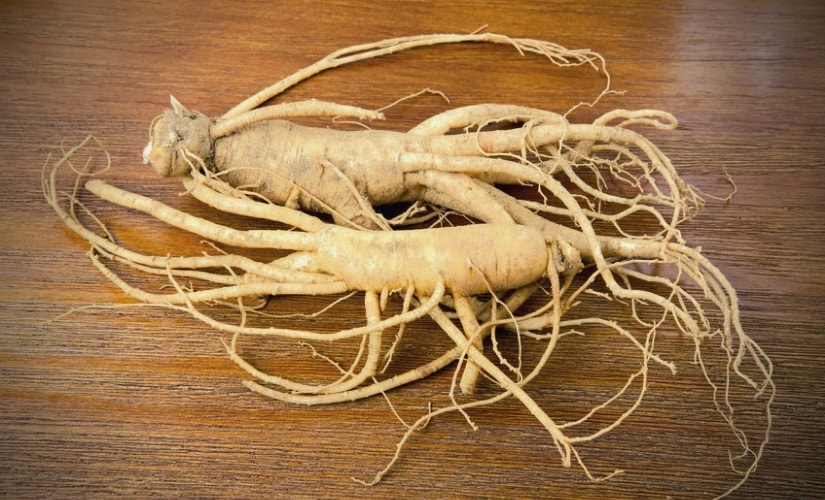
Panax Ginseng is a species of ginseng commonly found in Asian countries such as Korea and China. This kind of ginseng is known to have several health benefits when taken.
Aside from acting as an anti-inflammatory and antioxidant, this kind of ginseng has been shown to improve mental function, mental health, immunological response, and conditions related to diabetes.
By controlling weight and diabetic conditions, this ginseng helps to reduce the conversion of testosterone to estrogen while promoting positive biological processes.
More importantly, ginseng targets the endocrine system. By improving the health of the endocrine system, ginseng improves the production of hormones within this system, including the production of hormones.
One study tested the effects of ginseng on patients experiences symptoms related to lowered testosterone, such as erectile disfunctions and lowered sexual desire.
After the use of ginseng, patients found that their symptoms improved (Kiefer 2003).
The same effect can be said for a study done on rats in 2009 (Fahim). In this study, rats were given 1 and 5% Panax Ginseng for a total of 60 days. The rats with higher doses of ginseng showed higher levels of blood testosterone (Fahim 2009).
Panax ginseng is one root plant that can easily be added to any diet or meal to boost testosterone production and maintenance.
Onions and Garlic
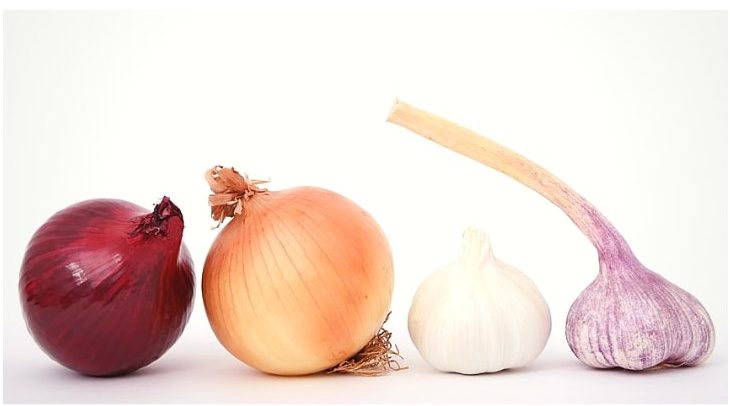
Onions and garlic are also easy additives to most meals that boost testosterone production.
The luteinizing hormone in the pituitary gland regulates testosterone production in the testes. Both onions and garlic contain diallyl disulfide, which is compound that promotes the production of luteinizing hormone.
A study in done in 2001 shows that “supplementation with .8 g/100gm garlic alters hormones associated with protein anabolism by increasing testicular testosterone” (Oi 2001).
Onions work similarly and increase levels of the luteinizing hormone, which in turn increase testosterone production.
Therefore, onions and garlic can be added to any diet to improve testosterone production.
Fatty Fish and Fish Oils
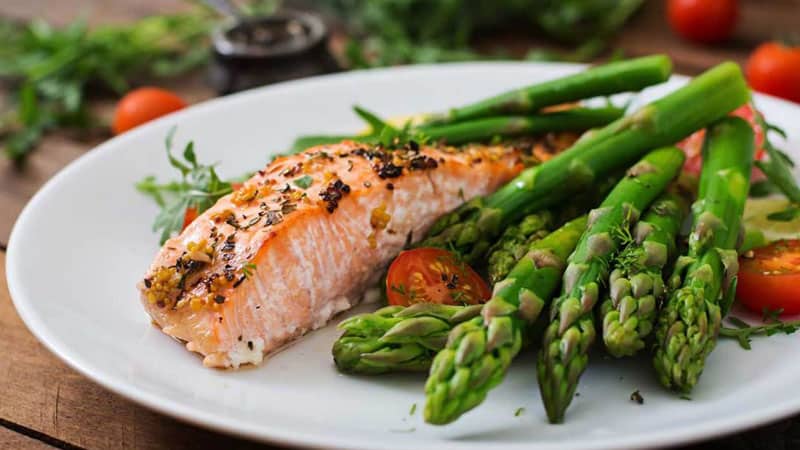
Aside from being rich in vitamin D, fish contain fatty oils that influence the production and synthesis of testosterone. Fish is more important to the synthesis of testosterone than the production.
Fish oil has been shown to change the composition of fatty acids in the testes. Fatty acid composition changes testosterone metabolism.
The use of fish oil increased testosterone. Significantly, the study suggests that the increased levels of testosterone in the blood can be affected through long-term consumption of fish oils.
Combined with vitamin D, fish is a good choice of protein that can boost testosterone while getting vitamins your body already needs. Most fish will work, but tuna, salmon, sardines, and cod are great choices that promote testosterone production
Magnesium-Rich Greens (Spinach, Kale, and Legumes)
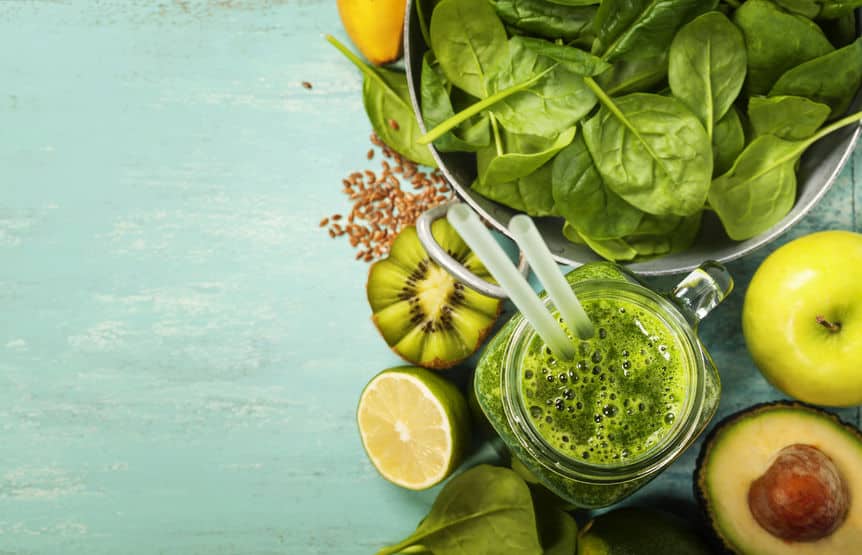
Any kind of research into natural testosterone boosters will reveal spinach as a natural testosterone-boosting food. The key nutrient in spinach that helps the body is magnesium.
Magnesium influences anabolic hormones, including testosterone.
Studies show that adjusting magnesium for your age and lifestyle (increasing magnesium for active lifestyles and the elderly) can help regulate or promote testosterone levels (Maggio 2011).
The amount of magnesium taken is dependent upon BMI, energy expended, and insulin synthesis.
Magnesium is a great testosterone booster. However, if you do not like spinach. You can also get magnesium through almonds, figs, chickpeas, and Brussel sprouts.
Zinc-rich Foods (Oysters, Meats, Seeds, Eggs)
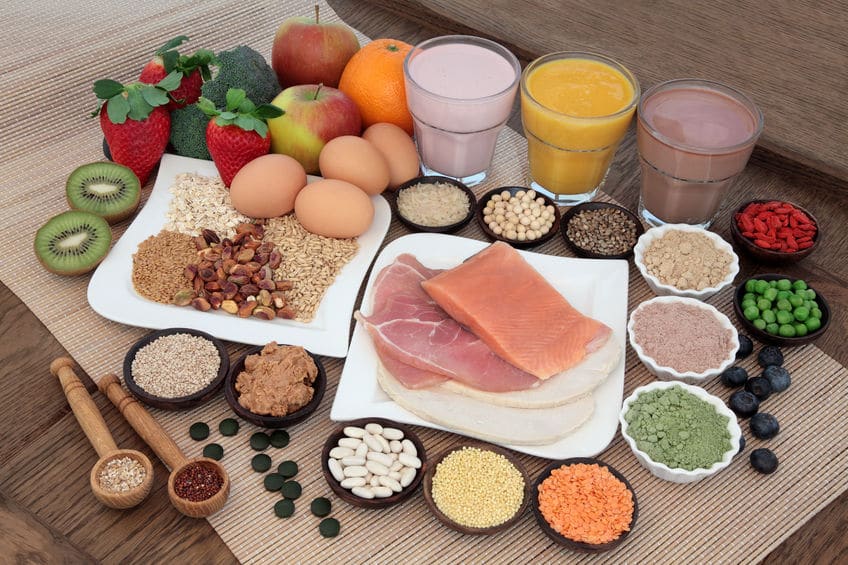
Several studies in the last two decades have shown a clear correlation between levels of zinc in the body and levels of testosterone.
One study (Prasad) clearly distinguishes that “dietary zinc restriction in normal young men was associated with a significant decrease in serum testosterone concentrations.”
Zinc has played a significant role in regulating and balancing the production and balance of testosterone in the body.
Zinc is also known to help maintain healthy sperm and reproductive functions. Alongside this, zinc helps maintain learning and memory, which is closely tied to normal testosterone levels.
It also helps decrease the risk of chronic diseases developed later in life.
One of these conditions that zinc helps prevent is hypogonadism, which hinders the body’s ability to produce normal levels of testosterone.
Zinc can easily be obtained through foods such as nuts, chickpeas, lentils, and seeds. Pumpkin, squash, and sesame seeds are particularly rich sources of zinc. In fact, pumpkin seeds are rich in both zinc and magnesium.
Some diary foods, like cheese and milk, can offer zinc. Eggs are also a good source of zinc.
Ashwagandha
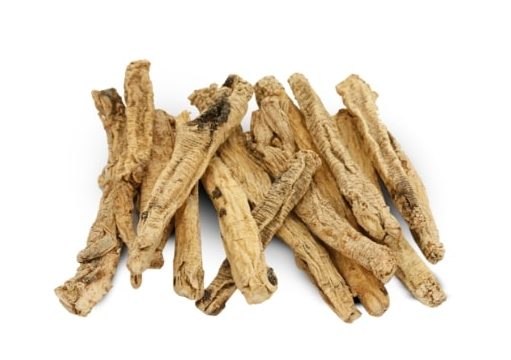
It is common to hear that Ashwagandha can be used to boost testosterone in the body. This herb is also a kind of ginseng. It is grown in Asian countries like India, as well as different parts of Africa.
Many individuals today take ashwagandha as a supplement or in supplemental form. Several studies have been conducted to discover the extend of this herb’s usefulness:
- https://www.ncbi.nlm.nih.gov/pubmed/28829155
- https://www.ncbi.nlm.nih.gov/pubmed/30854916
- https://www.ncbi.nlm.nih.gov/pubmed/28471731
It has been shown to help relieve symptoms of stress, prevent illness in the adrenal glands, increase stamina, improve symptoms related to uterine fibroids, and prevent memory degeneration (Singh).
Ashwagandha is also believed to work as an anti-inflammatory and helps arthritis.
The significant factor is that it improves the function of the adrenal glands, which are important to the production and maintenance of testosterone in the body.
Ashwagandha can be consumed through tablet supplements. However, you can also find ways to cut up the root and use it in your daily meals and diet plans.
Dark Chocolate (in moderation)

While it may seem counterintuitive, but dark chocolate has many health benefits, some of which help boost testosterone production in men and women.
Dark chocolate that is made from cocoa has various vitamins and nutrients. These include iron, fiber, copper, magnesium, potassium, and zinc.
As listed in previous sections, zinc and magnesium have been shown to boost testosterone production.
Dark chocolate also lowers risk of heart disease, and it can improve blood flow throughout the body.
Aside from these benefits, dark chocolate can help manage LDL levels (the “bad cholesterol”) and help decrease symptoms of stress, which can significantly influence testosterone production.
Those who are stressed or depressed tend to suppress testosterone production.
This food is an antioxidant that improves both the body’s cardiovascular system while helping balance hormone levels.
Please keep in mind that while dark chocolate has numerous health benefits, it should be consumed carefully and in moderation.
Dark chocolate is higher in calories than other testosterone-boosting food options. Therefore, the daily recommended amount of dark chocolate to consume in one day is around 1 to 2 ounces.
Eating the Foods that Will Naturally Boost Testosterone
Testosterone is crucial to balancing different processes in the human body. It is especially important to the growth and development of males, both physically and sexually.
Those who have lowered levels of testosterone should take their conditions seriously and look into balancing their hormone levels.
These foods and herbs, which are rich in magnesium, zinc, and healthy fatty oils are simply steps that can be implemented in almost any lifestyle.
They offer natural methods to boost testosterone levels in the body.
While these are great ways to improve hormonal production or balance in the body, even if you do not have lowered levels of testosterone, they should be supplemented for the treatment of serious medical conditions.
Some testosterone conditions need to be assessed and treated by medical professionals.
Testosterone levels can be boosted naturally, and there are several food options that can help you boost those levels naturally.
Find the foods that fit your life and tastes, and then you are on the path to a better-balanced body.
If you enjoyed reading this post, you might also like:
- The Best Fat Burner Supplements
- Best Testosterone Booster Supplements
- Pre-workout Supplements: The Definitive Guide
- What are fat burner supplements? Do they work?
- Should you take pre-workout supplement before cardio training?
References:
Fahim, M. S., Fahim, Z., Harman, M., Clevenger T. E., Mullins, W., & Hafez, E. S. E. Hafez. (2009). “Effect of panax ginseng on testosterone level and prostate in male rats.” Journal of Reproductive Systems, 8(4), 261-263.
Lynn, S. E., Perfito, N., Guardado, D., & Bentley, G. E. (2015). “Food, stress, and circulating testosterone: Cue integration by the testes, not the brain. . ..” General and Comparative Endocrinology, 215(1), 1-9.
Maggio, M., et al. (2011). “Magnesium and anabolic hormones in older men.” International Journal of Adrology, 6(2), 594-600.
Oi, Y., Imafuku, M., Kominato, Y., Nishimura, S., Iwai, K. (2001). “Garlic supplementation increases testicular testoerine and decreases plasma . . ..” Journal of Nutrition, 131(8), 2150-6.
Prasad, AS., et al. (1996). “Zinc status and serum tesotesterone levels of healthy adults.” Nutrition, 12(5), 344-8.
Singh, N, et al (2011). “An overview on Ashwagandha.” African Journal of Traditional and Alternative Medicines, 8(5), 208-13.
UW Integrative Medicine. “Maintaining testosterone levels naturally.” University of Wisconsin: School of Medicine and Public Health.


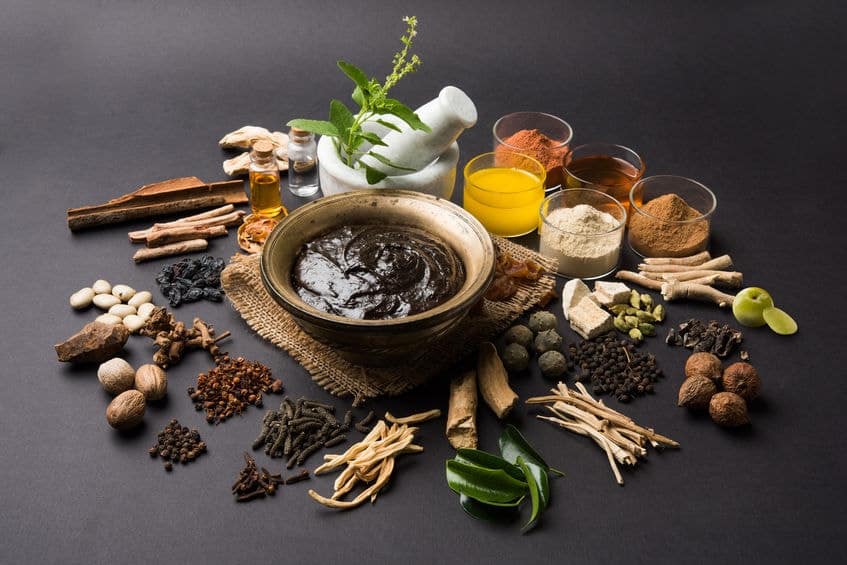



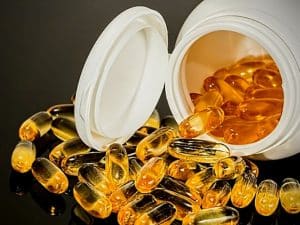
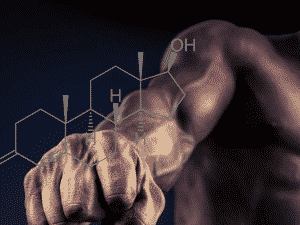

Add Comment